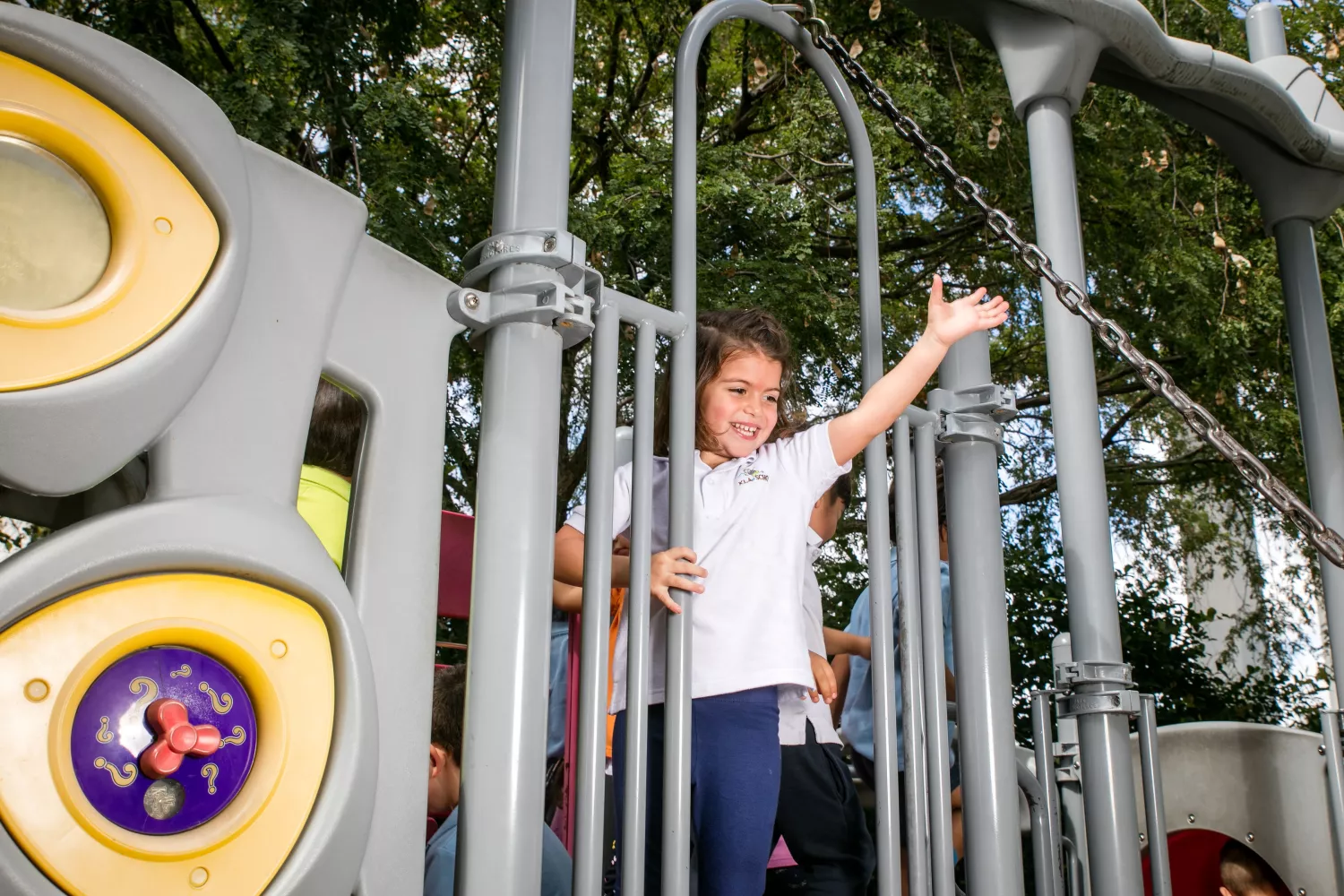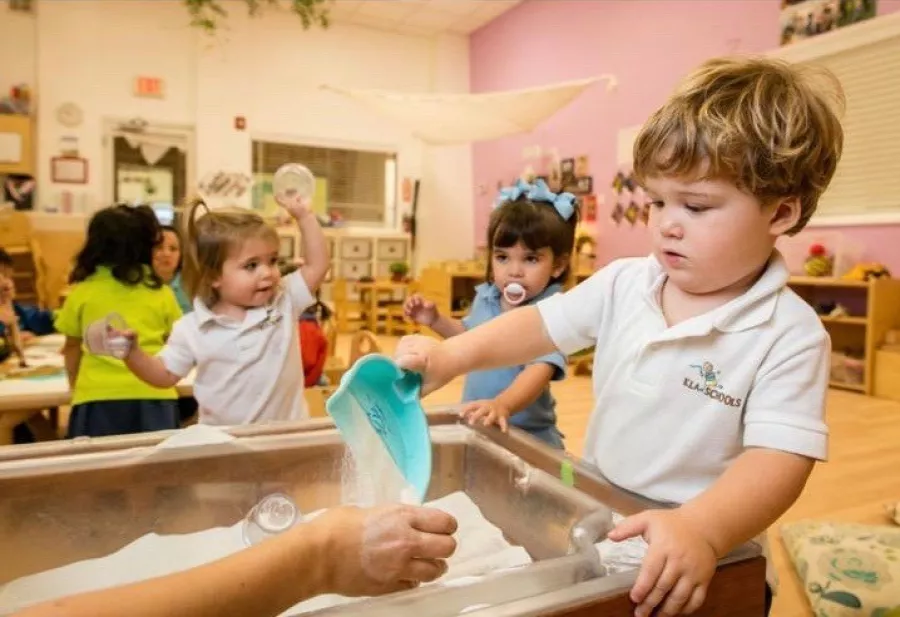The Importance of Early Childhood Education
Topics: Child Development
Age Range: Preschool
The importance of early childhood education cannot be overstated. During this critical period, children learn the fundamental pillars that will allow them to be successful in their future education and work.
Research consistently shows that high-quality early childhood education, like our daycare for 4-year-olds in Coral Gables, has long-lasting benefits for children's cognitive, social, and emotional development. These early years are when children develop crucial skills such as language acquisition, problem-solving, and social interaction.
A strong foundation in these areas not only prepares children for academic success but also contributes to their overall well-being and ability to form positive relationships throughout life. Investing in early childhood education is investing in the future, as it helps create a more educated, skilled, and socially adept society.
Why Education Is Important in Early Childhood
Here are some ways that research has shown the ways in which early childhood education is critical.
- A child’s brain develops quickest in their earliest years, and quality education in this period can enhance development in many areas.
- Early childhood education can translate into higher earnings in adulthood careers.
- Trained and compassionate educators can help a child develop various aspects of their personality in caring, age-appropriate ways.
- Educators are ideally suited to help identify and address any unique needs early on in a child’s life, and can help parents find resources.
- Early childhood education can result in fewer behavioral problems later in life.
- Additionally, children who receive early childhood education may be less likely to become involved in criminal activities as an adolescent and young adult.
- Early childhood education can impart health and wellness benefits onto a child, including improved cardiovascular health, improved mental health, and higher immunization and screening.
- Children can practice social skills in a controlled, low-risk environment. This allows them to develop empathy, problem-solving, self-expression, and accountability.
- Pre-kindergarten education can benefit children with learning disabilities or physical disabilities.
- An engaging and encouraging early childhood education program can make learning fun for children, creating lifelong positive associations with learning.
- Early childhood education can help to counter the negative developmental effects that early life stress can have on a child.
The first five years of a child’s life are critical to their overall development. Their brains are developing at a rapid rate in this period, and research has shown that infants as young as three months begin to process complex thoughts. In a worldwide study of the industry, we concluded that through early childhood education we can have a positive impact on the future of our society.
Reggio Emilia: A Different Approach to Early Childhood Education
The Reggio Emilia approach to early childhood education differs significantly from typical preschool models in several key aspects:
The Reggio Emilia approach views children as capable, curious individuals who are active participants in their own early learning. Unlike traditional preschools that often follow a predetermined curriculum, Reggio-inspired programs are child-led and project-based, and teachers act as co-learners and facilitators.This approach fosters creativity, critical thinking, and a deep love for learning from an early age.
The environment plays a crucial role in Reggio Emilia-inspired schools, often referred to as the "third teacher" alongside educators and parents. The classrooms and outdoor spaces are carefully designed to be aesthetically pleasing, filled with natural light, and rich in materials that provoke exploration and creativity. This contrasts with typical preschools where the environment might be more structured and less flexible.
Documentation and collaboration are central to the Reggio Emilia approach. Educators meticulously document children's work, conversations, and thought processes through photos, videos, and transcriptions. This documentation serves multiple purposes: it makes learning visible, allows for reflection and assessment, and involves parents deeply in their child's education.
In the Reggio Emilia approach, collaboration extends beyond the classroom, with parents viewed as partners in their child's learning journey. This level of documentation and parental involvement is often more extensive than in typical preschools, where communication might be limited to periodic parent-teacher conferences and report cards.
Should Parents Choose a Reggio Emilia Preschool for Early Childhood Education?
When considering whether parents should choose a Reggio Emilia preschool for early childhood education, it's important to weigh the approach's unique features against individual family needs and values. Here's a balanced perspective on the matter:
Advantages of Reggio Emilia preschools:
- Child-centered learning: The approach respects children as capable individuals, fostering independence.
- Strong community involvement: Parents are viewed as partners in education, creating a supportive learning community.
- Adaptable curriculum: The flexible, interest-driven curriculum can engage children more deeply in their learning.
Potential considerations:
- Transition to traditional schooling: Some children might face challenges when moving to more structured educational environments later.
- Parent involvement: The high level of expected parental engagement might be challenging for some families.
- Individual fit: Some children might thrive more in environments with more structure or different educational philosophies.
Ultimately, the decision depends on the individual child's needs, family values, and practical considerations. Parents should research thoroughly, visit schools, and consider their child's personality and learning style when making this important decision.
How the Reggio Emilia Approach Prepares Children for Higher Education
The Reggio Emilia approach, while primarily focused on early childhood education, lays a strong foundation that prepares children for higher education in several ways:
- Critical thinking skills: The approach encourages children to question, analyze, and think deeply about their experiences, which are crucial skills for advanced academic work.
- Problem-solving abilities: Through project-based learning, children develop the ability to approach complex problems creatively and persistently.
- Research skills: Children learn to gather information from various sources, test hypotheses, and draw conclusions - skills essential for higher education.
- Collaboration: Group work and peer learning prepare children for collaborative projects and teamwork common in higher education settings.
- Communication skills: The emphasis on expressing ideas through multiple "languages" (verbal, written, artistic, etc.) enhances children's ability to articulate complex thoughts effectively.
- Self-directed learning: Children learn to take initiative in their learning, a crucial skill for success in higher education where independent study is often required.
- Creativity and innovation: The approach nurtures creative thinking, which is valuable across all academic disciplines.
- Metacognition: Children are encouraged to reflect on their learning process, developing self-awareness that aids in future academic pursuits.
- Adaptability: The flexible, project-based approach helps children become adaptable learners, ready to tackle new and unfamiliar subjects.
- Interdisciplinary thinking: The integrated curriculum helps children make connections across different areas of knowledge, a valuable skill in higher education.
- Curiosity and love for learning: By fostering natural curiosity, the approach instills a lifelong love of learning that propels children through their educational journey.
- Emotional intelligence: The focus on social-emotional development prepares children for the interpersonal aspects of higher education.
- Confidence in expressing ideas: Children learn to voice their thoughts and defend their ideas, preparing them for academic discussions and debates.
- Documentation skills: The practice of documenting learning experiences develops organizational and reflective skills useful in higher education.
- Technology integration: When used appropriately, technology in Reggio-inspired classrooms prepares children for the digital aspects of modern higher education.
While the Reggio Emilia approach doesn't directly teach advanced academic content, it cultivates the foundational skills, attitudes, and learning dispositions that enable children to succeed in future academic endeavors, including higher education. The focus is on developing capable, confident learners who are well-equipped to face the challenges of advanced learning environments.
Contact us today for more information about our innovative Reggio Emilia early childhood education programs.

